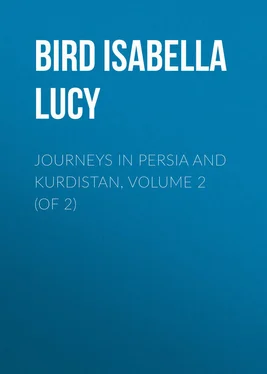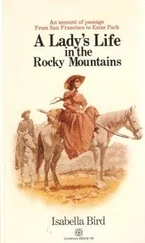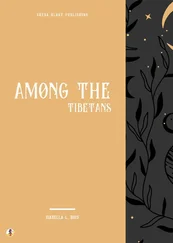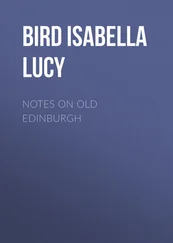Isabella Bird - Journeys in Persia and Kurdistan, Volume 2 (of 2)
Здесь есть возможность читать онлайн «Isabella Bird - Journeys in Persia and Kurdistan, Volume 2 (of 2)» — ознакомительный отрывок электронной книги совершенно бесплатно, а после прочтения отрывка купить полную версию. В некоторых случаях можно слушать аудио, скачать через торрент в формате fb2 и присутствует краткое содержание. ISBN: , Жанр: foreign_language, foreign_antique, foreign_prose, Путешествия и география, на английском языке. Описание произведения, (предисловие) а так же отзывы посетителей доступны на портале библиотеки ЛибКат.
- Название:Journeys in Persia and Kurdistan, Volume 2 (of 2)
- Автор:
- Жанр:
- Год:неизвестен
- ISBN:http://www.gutenberg.org/ebooks/38828
- Рейтинг книги:5 / 5. Голосов: 1
-
Избранное:Добавить в избранное
- Отзывы:
-
Ваша оценка:
- 100
- 1
- 2
- 3
- 4
- 5
Journeys in Persia and Kurdistan, Volume 2 (of 2): краткое содержание, описание и аннотация
Предлагаем к чтению аннотацию, описание, краткое содержание или предисловие (зависит от того, что написал сам автор книги «Journeys in Persia and Kurdistan, Volume 2 (of 2)»). Если вы не нашли необходимую информацию о книге — напишите в комментариях, мы постараемся отыскать её.
Journeys in Persia and Kurdistan, Volume 2 (of 2) — читать онлайн ознакомительный отрывок
Ниже представлен текст книги, разбитый по страницам. Система сохранения места последней прочитанной страницы, позволяет с удобством читать онлайн бесплатно книгу «Journeys in Persia and Kurdistan, Volume 2 (of 2)», без необходимости каждый раз заново искать на чём Вы остановились. Поставьте закладку, и сможете в любой момент перейти на страницу, на которой закончили чтение.
Интервал:
Закладка:
The present feud between the Magawe and the Zalaki tribes is of the first degree. It is undoubtedly a part of the truly Oriental policy of Persia to foment tribal quarrels, and keep them going, with the object of weakening the power of the clans, which, though less so than formerly, is a standing menace to the central government.
On reaching camp after this visit I found a greater crowd than ever, and as "divers of them came from far," I tried to help them till nine o'clock, and as Aziz had returned the crowding was not so severe. He said, "You're very tired, send these people away, you've done enough." I answered that one had never done enough so long as one could do more, and he made a remark which led me to ask him if he thought a Kafir could reach Paradise? He answered "Oh no!" very hastily, but after a moment's thought said, "I don't know, God knows, He doesn't think as we do , He may be more merciful than we think. If Kafirs fear God they may have some Paradise to themselves, we don't know."
I. L. B.LETTER XVIII ( Continued ) 5 5 From Kalahoma for the rest of the route the predatory character of the tribes, the growing weakness of the Ilkhani's authority, the "blood feuds" and other inter-tribal quarrels, and the unsettled state of the Feili Lurs, produced a general insecurity and continual peril for travellers, which rendered constant vigilance and precautions necessary, as well as an alteration of arrangements.
The call to "Boot and Saddle" was at three, and I was nearly too tired to pack in the sultry morning air. The heat is overpowering. Khaja Taimur no doubt had reasons for a difficulty in providing guides, which caused delay. The track lay through pretty country, with abounding herbage, to the village and imamzada of Makhedi. There the guide said he dared not go any farther for fear of being killed, and after some time another was procured. During this delay a crowd of handsome but hardship-aged women gathered round me, many of them touching the handkerchiefs on their heads and then tapping the palms of their hands, a significant sign, which throughout Persia, being interpreted, means, "Give me some money."
The Agha is in the habit of gathering the little girls about him and giving them krans as from his own children, a most popular proceeding usually; but here the people were not friendly, and very suspicious. Even the men asked me clamorously, "Why does he give them money? It's poisoned, it's cursed, it's to make them blind." However, avarice prevailed over fear. The people rarely see money, and it is not used as a medium of exchange, but they value it highly for paying the tribute and as ornaments for the women. Barter is the custom, and with regard to "tradesmen," whether in camps or villages, it is usual for each family to pay so much grain annually to the blacksmith, the carpenter, the shoemaker — i. e. the man who makes compressed rag or leather soles for ghevas and unites the cotton webbing ("upper") to the sole – and the hammam keeper, in the rare cases where there is one. They were cutting wheat on July 12 there at an altitude of 7000 feet. Where there are only camps the oxen tread it out at once on the hard soil of the fields, but where there is a village the sheaves are brought in on donkeys' backs to a house roof of sun-dried clay, and are there trodden out, the roofs being usually accessible from the slope above.
We descended to a deep ford, crossed the river Ab-i-Baznoi (locally known as Kakulistan, or "the curl," from its singular windings), there about sixty feet wide, with clear rapid water of a sky-blue tint, very strong, and up to the guide's waist, and entered a steep-sided stony valley, where the heat was simply sickening. There the second guide left us, saying he should be killed if he went any farther, but another was willing to succeed him. After a steep ascent we emerged on a broad rolling upland valley, deeply gashed by a stream, with the grand range of the Kala Kuh on the south side, and low bare hills on the north. It is now populous, the valley and hillsides are spotted with large camps, and the question at once arose, "Hostile or Friendly?"
I was riding as usual with Mirza behind me, when a man with a gun rushed frantically towards me from an adjacent camp, waving his gun and shouting, "Who are you? Why are you in our country? You're friends of Khaja Taimur, you've given him presents, we'll rob you"! With these and many similar words he pursued us, and men started up as by magic, with long guns, running alongside, the low spurs became covered with people in no time, and there was much signalling from hill to hill, "A-hoy-hoy-hoy-hoy," and sending of messengers. Mirza pacified them by saying that we are friends of Isfandyar Khan, and that I have presents for Aslam Khan, their chief; but soon the shout of "Feringhis" was raised, and from group to group along the knolls swelled the cry of "Feringhis! Feringhis!" mixed with a few shouts of Kafir ; but without actual molestation we reached a steep and uncomfortable camping-ground, Padshah-i-Zalaki, at an altitude of 7800 feet, with an extensive view of the broad green valley.
Before we halted Aslam Khan, a very fine-looking man, and others met us, and performed feats of horsemanship, wheeling their horses in small circles at a gallop, and firing pantomimically over their left shoulders and right flanks. The Sahib came in later, so that our party was a tolerably strong one.
The first thing the people did was to crowd into the shelter-tent and lie down, staring fixedly, a thing which never happened before, and groups steadily occupied the tops of the adjacent spurs. After my tent was pitched the people assembled round it in such numbers, ostensibly desiring medicine, that the Khan sent two tufangchis to keep order among them, and Karim, whose arm is now well, was added as a protection. The Agha ordered that the people should sit in rows at the sides and take their turn, one at a time, to come into the verandah, but no sooner were he and Aziz Khan out of sight than they began to crowd, to shout, and to become unmanageable, scuffling and pushing, the tufangchis pretending to beat them with the barrels of their guns, but really encouraging them, and at length going away, saying they could not manage them. Karim begged me to stop giving medicine, for he was overpowered, and if he opposed them any more there would be a fight. They had said that if he "spoke another word they would kill him." They were perfectly good-humoured all the time, but acted like complete savages, getting under the flys , tugging at the tent ropes, and trying to pull my blankets off the bed, etc. At last the hindmost gave a sudden push, sending the foremost tumbling into the tent and over me, upsetting a large open packet of sulphate of zinc, just arrived from Julfa, which was on my lap.
I left the tent to avoid further mischief, but was nearly suffocated by their crowding and tugging my dress, shouting " Hakīm! Hakīm! " The Sahib, who came to the rescue, and urged them in Persian to depart, was quite powerless. In the midst of the confusion the Khan's wives and daughter came to visit me, but I could only show them the crowd and walk, followed by it, in the opposite direction from the tent, till I met the Agha, whose presence restored order. That night nearly all Hadji's juls or mule blankets and a donkey were stolen.
The Zalakis are a large and powerful tribe, predatory by habit and tradition. Aslam Khan himself directed certain thefts from which we suffered, and quoted a passage from the Koran not only to extenuate but to warrant depredations on the goods of "infidels."
Sunday was spent in the hubbub of a crowd. I was suffering somewhat from a fall, and yet more from the fatigues of Kalahoma, and longed for rest, but the temperature of the tent when closed was 106°, and when open the people crowded at the entrance, ostensibly for medicine, but many from a pardonable and scarcely disguised curiosity to see the "Feringhi Hakīm ," and hear her speak.
Читать дальшеИнтервал:
Закладка:
Похожие книги на «Journeys in Persia and Kurdistan, Volume 2 (of 2)»
Представляем Вашему вниманию похожие книги на «Journeys in Persia and Kurdistan, Volume 2 (of 2)» списком для выбора. Мы отобрали схожую по названию и смыслу литературу в надежде предоставить читателям больше вариантов отыскать новые, интересные, ещё непрочитанные произведения.
Обсуждение, отзывы о книге «Journeys in Persia and Kurdistan, Volume 2 (of 2)» и просто собственные мнения читателей. Оставьте ваши комментарии, напишите, что Вы думаете о произведении, его смысле или главных героях. Укажите что конкретно понравилось, а что нет, и почему Вы так считаете.












